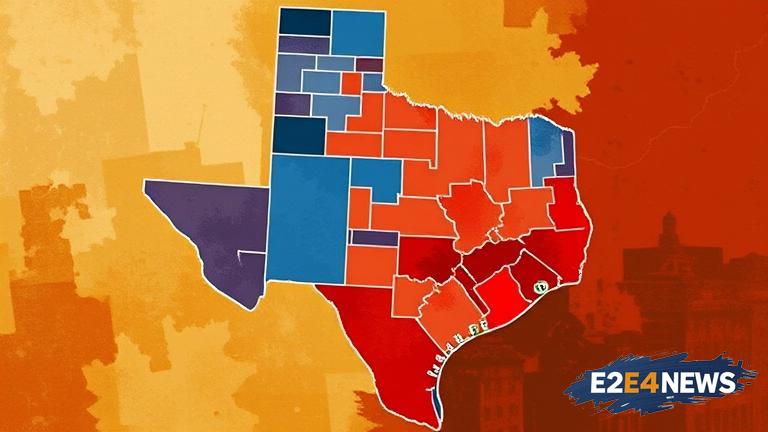The ongoing redistricting process in the United States has taken a significant turn, with Republican-led states like Texas and Florida making substantial gains. Texas Governor Greg Abbott and Florida Governor Ron DeSantis have been at the forefront of these efforts, pushing for new congressional maps that could potentially shift the balance of power in the US Congress. The redistricting process, which occurs every decade following the census, has become a highly contentious issue, with both parties vying for control. In Texas, the proposed map would likely result in the addition of two new Republican-leaning districts, while also strengthening the party’s hold on existing seats. This move has been met with criticism from Democrats, who argue that the new map is gerrymandered and unfairly favors Republican candidates. Meanwhile, in Florida, Governor DeSantis has proposed a map that would also likely benefit Republican candidates, potentially leading to the gain of several congressional seats. The redistricting efforts in these states have significant implications for the upcoming elections, as they could potentially alter the composition of the US Congress. The Republican Party is seeking to capitalize on the redistricting process to gain an advantage in the House of Representatives, where they currently hold a narrow majority. Democrats, on the other hand, are fighting to maintain their seats and prevent further erosion of their power. The redistricting process is also being closely watched by the US Supreme Court, which has previously ruled on the constitutionality of certain redistricting maps. The court’s decisions have significant implications for the redistricting process, as they can either uphold or strike down maps that are deemed to be gerrymandered or unfair. As the redistricting process continues to unfold, it is likely that the issue will remain a major point of contention between the two parties. The outcome of the redistricting efforts will have far-reaching consequences for the US political landscape, potentially shaping the course of future elections and the balance of power in the US Congress. The redistricting process is a complex and nuanced issue, involving a delicate balance of political, demographic, and geographic factors. Ultimately, the success or failure of the redistricting efforts will depend on a variety of factors, including the actions of state legislatures, the decisions of the US Supreme Court, and the responses of voters in the affected districts. The redistricting process is a critical component of the US democratic system, as it helps to ensure that the voices of all citizens are represented in the US Congress. As the process continues to evolve, it is essential that all stakeholders, including voters, politicians, and the judiciary, remain vigilant and committed to upholding the principles of fairness and democracy. The redistricting efforts in Texas and Florida are just the beginning, as other states are also engaged in their own redistricting processes, each with their own unique challenges and implications. The ongoing redistricting saga is a reminder of the complexities and challenges of the US democratic system, where the pursuit of power and influence can often lead to contentious debates and high-stakes battles.
